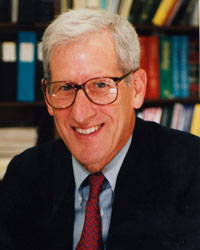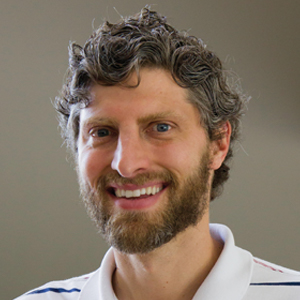Kornfeld’s work applauded
for ‘rigor and scientific breadth'
The American Society for Biochemistry and Molecular Biology has named Stuart Kornfeld, professor of medicine in the School of Medicine at Washington University in St. Louis, the winner of the society’s Herbert Tabor/Journal of Biological Chemistry Lectureship.

About the award
The Herbert Tabor/Journal of Biological Chemistry Lectureship recognizes outstanding lifetime scientific achievements and was established by the ASBMB to acknowledge the many contributions of Herbert Tabor to the society and the journal, of which he served as editor for nearly 40 years and now serves as co-editor.
The American Society for Biochemistry and Molecular Biology has named Stuart Kornfeld, professor of medicine in the School of Medicine at Washington University in St. Louis, the winner of the society’s Herbert Tabor/Journal of Biological Chemistry Lectureship.
Kornfeld received the award for his seminal research in the field of glycobiology, in particular his work describing multiple novel pathways involved in oligosaccharide biosynthesis, processing, and maturation. These actions subsequently were shown to be critical in mediating proper folding and transport of major cellular proteins, including those that regulate activity of the lysosome, a critical organelle involved in the degradation of macromolecules. Kornfeld also showed that disruptions in these processes could cause a range of metabolic diseases that have severe effects on organ systems.
The award has special meaning for Kornfeld. “Herb Tabor has been one of my heroes since I first met him at the National Institutes of Health in the 1960s,” he said. “I am very honored to be selected.”
Karen Colley, professor at the University of Illinois-Chicago, said she remembered “feeling very special when Stuart, at the beginning of a seminar years ago, announced to the audience that, by virtue of having worked for Jacques Baenziger (his first graduate student), I was therefore his granddaughter in science!” She was quick to reciprocate the pride Kornfeld expressed for her that day. “His incredibly significant contributions to glycobiology and cell biology, elegantly simple scientific approach, and ability to ask the most important questions and solve complex problems make this amazingly humble man an extraordinary scientist and human being.”
University of Chicago professor Ben Glick agreed. “Dr. Kornfeld’s contributions are spectacular in their combination of rigor and scientific breadth.”
Kornfeld was an undergraduate at Dartmouth College and earned his M.D. from the Washington University in St. Louis medical school, where, save for a brief stint at the NIH from 1963 to 1965, he has remained his entire career. He ran the school’s hematology division for more than 30 years.
Kornfeld will receive his award during the Experimental Biology 2012 conference in San Diego, where he will deliver the opening lecture of the conference. The presentation will take place at 6 p.m. April 21 in the San Diego Convention Center.
Enjoy reading ASBMB Today?
Become a member to receive the print edition four times a year and the digital edition monthly.
Learn moreGet the latest from ASBMB Today
Enter your email address, and we’ll send you a weekly email with recent articles, interviews and more.
Latest in People
People highlights or most popular articles

Finding a symphony among complex molecules
MOSAIC scholar Stanna Dorn uses total synthesis to recreate rare bacterial natural products with potential therapeutic applications.

Sketching, scribbling and scicomm
Graduate student Ari Paiz describes how her love of science and art blend to make her an effective science communicator.

Embrace your neurodivergence and flourish in college
This guide offers practical advice on setting yourself up for success — learn how to leverage campus resources, work with professors and embrace your strengths.

Survival tools for a neurodivergent brain in academia
Working in academia is hard, and being neurodivergent makes it harder. Here are a few tools that may help, from a Ph.D. student with ADHD.

Quieting the static: Building inclusive STEM classrooms
Christin Monroe, an assistant professor of chemistry at Landmark College, offers practical tips to help educators make their classrooms more accessible to neurodivergent scientists.

Hidden strengths of an autistic scientist
Navigating the world of scientific research as an autistic scientist comes with unique challenges —microaggressions, communication hurdles and the constant pressure to conform to social norms, postbaccalaureate student Taylor Stolberg writes.

